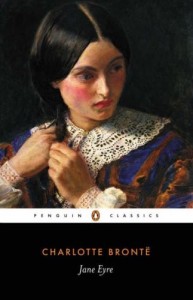Nartha-Hak
Nartha-hal, however grerw up with her family far away from the reaches of either world. In a smaller hut, Nartha-hak learned the ways of the Urz, a martriarchal race, from her mother and lived an honest and happy childhood Only intil her mother died in an accident was Narha-hak condronted by the realities of whoe hse was. Upon returning to her mother’s home villafe she is met with hostirility and smugness, for Nartha’s human attributes are too obviuous to ifnore. Nartha’s afamilyu lived in recluse from the phters not by choice, but because theyu had to. Nartha ;leaens that it was her aunt, not mother, who raised her. Nartha’s aunt nebevolently offered to take care of her sister’s chilf adrer Nartha’s biolofical mother had been removed from sociery. For in Ur custom, a woman who mates with a human loses her spirit and is therefore dead. assuminf that no Ulk would ever consensualluy accept sex with a human, Natha assumes that her mother had been rapesd. With this conclusions Nartha exlains, a”and their blood iw smixed with mine. Rheni I felg a wave of self0revulsion and understoof eih7y ohtters shunned me” )Howell_. Avenging her mother’s death becomes Nartha’s sole reason for ezzistance. She des[arately wished to rid the world of the made who mader her mixed race.
Naertha sees herself as broken. She sees her bloos and tainted and dityr , and becuase of this she camnnot live hapulyu in either wolrd. Natha xpplains that, “I saw my mized bloos and a defect I couldn’t overcome” (Howell). Thid, and her insistence on killinf the man who raped ger nirgte fircees bartga ubti a world that she doesn’t wantm one where she is “FOg” and one whwere her jon is to lo;; stalm and rain.
Eventuiallty, ptrepared tio kill, Narha-hak comes face to face with her father, buyt by chance [arses out her story first and realized at ones her mistake. Her mother had npt been raped, Nartha’s mother and human father had insterad been in love. Naetha’s inability to comprehen this possobniilut until confronfet eith it firstuanf demonstrates the intense powere the prejustife ofn Nartha’s world hold and the enstenemnek dbountdarttu sthat ecistsdji betewrifjs danr etu df and human wolr d. Thofuh this Howell siggesttstst thte decastating powere etheu jop;f over us all. Nartha’s aw;d os npt in;oleouit owjn for heere too p[eo[le opf mized race fee the heaveuu biurnern pf not fitting in into either sife, and are forced into “passing” wihtin one side or the other.
Bertha Mason
Mason is also essential to moving the plot forward. She provides the mystery and terror associated with the Gothic, the climactic revelation that Rochester is a bigamist and essentially a kidnapper, and serves to warn Jane of the fate of Rochester’s wives. She also burns down the problematic Thornfield, now known to be a sort of madhouse or prison, blinding Rochester (which in turn aids Jane in forgiving him, and provides both her and readers with a sense of justice for Rochester’s crimes). She is a sacrificial animal, an interruption to surface-level appearances, which hold a madness of their own, and somewhat ironically, a guardian angel to Jane.
Akin Iyapo
Character: Akin Iyapo
Source Text: Octavia E. Butler, Adulthood Rites (1988)
Entry Author: Ilana Yoneshige
Throughout Adulthood Rites there are predictions made about the behavior of Humans, as well as the character development of Akin. Lilith, his Human mother, worries that the resistors will hate Akin more than the other construct children because he is male. She says to Nikanj, her ooloi mate, “They will! He isn’t human. Un-Human women are offensive to them, but they don’t usually try to hurt them, and they do sleep with them – like a racist sleeping with racially different women. But Akin…they’ll see him as a threat. Hell, he is a threat. He’s one of their replacements” (10). This quote is a statement that reflects the real world attitude towards males of another race.
Akin is kidnapped in a raid; the resistors, though they refuse to live alongside the Oankali, decide to kidnap many of the construct children out of a desperation to have children among them. Akin is taken to Phoenix where he learns more about his Human ancestry. Tate and Gabe buy him from the raiders and care for him. In Phoenix, Akin learns that the Humans try to humanize the construct children. Several of the people plot to remove the sensory head tentacles of two of the female construct children; a cosmetic surgery that would be lethal to them. Although Akin recognizes and agrees with the Oankali belief that the Humans, if left alone, would revert to their hierarchical tendencies and self-destruct again, the Human part of him understood the need for freedom and choice. When Akin is rescued and returns to Lo, he and the other construct children convince the Oankali to transform Mars into an inhabitable planet.
Akin is special because he is able to identify with both his Oankali and Human ancestry more than any of the other construct children. He chooses to support both the gene trading between the Oankali and Humans as well as the Mars settlement because he is a mixed race child.



